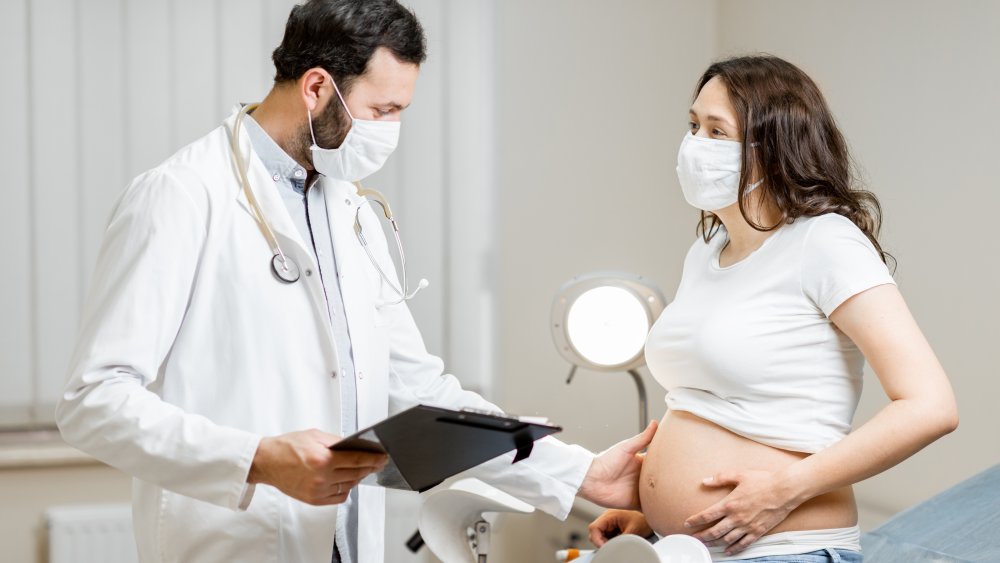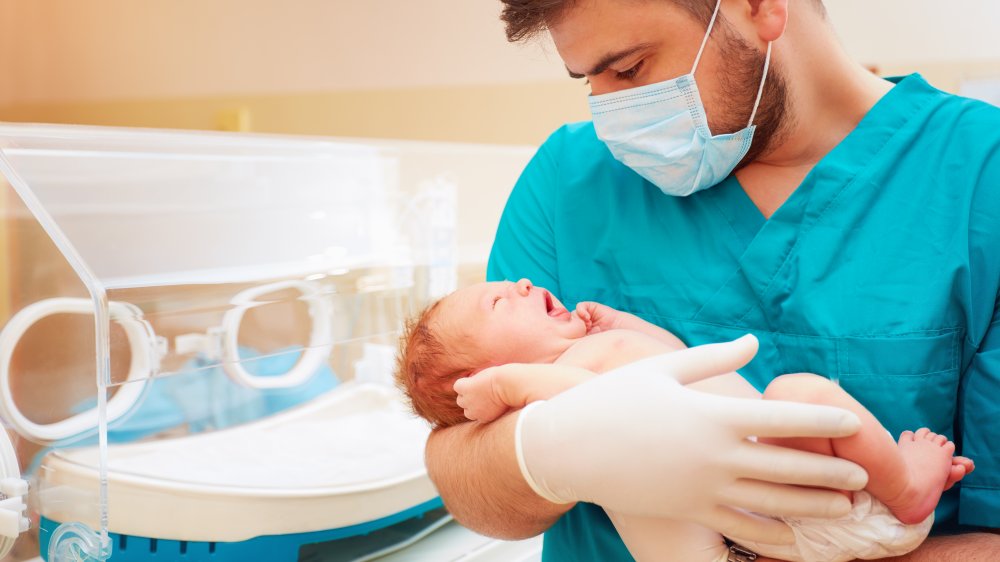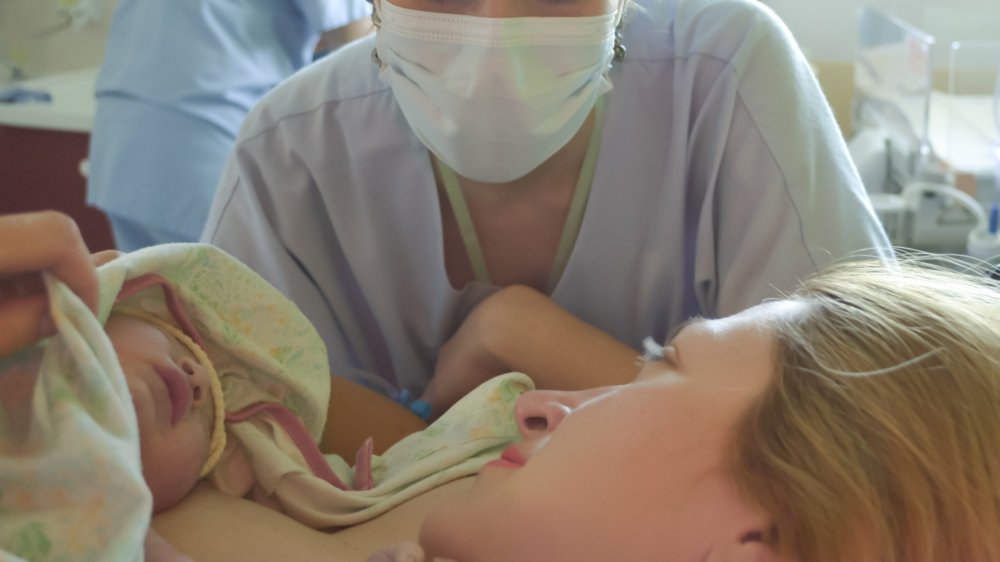How To Have A Healthy Pregnancy And Birth During The Pandemic
Having a baby, under any circumstances, is a daunting endeavor, especially the first time around. Somehow, your ordinary body has to grow a brand-new human, appropriately feeding it as you may battle morning sickness, heartburn, and cravings for foods that are healthy to neither of you — meanwhile avoiding the dangers of hot tubs, hair dyes, and dental X-rays. Then, even more dauntingly, your job is to expel a seven- to nine-pound infant, from a very small part of your anatomy, so that it can exist on its own ... without either of you getting too banged-up in the process.
Being pregnant during a pandemic, though, makes ordinary pregnancy look like child's play. You're more vulnerable to getting infected with coronavirus, so you're likely self-isolating as much as possible. Plus, even going in for routine check-ups may make you nervous about transmission — nerves that may be heightened as pregnancy hormones wreak havoc on your emotions. But indeed, it is possible to have a healthy pregnancy and childbirth during a pandemic. In an interview with The List, OB/GYN Jennifer Smith, MD, FACOG at Consultants in Women's Healthcare, offered advice for keeping you and your baby safe.
Don't skip prenatal visits
We know what you're thinking: Hospitals are where the sick people go, so maybe you'd be better off hunkering down at home with your baby bump. Smith said this is a bad idea. "Stay on top of prenatal care. Don't skip any prenatal visits unless discussed with your physician first," she urged. "Going to see your doctor feels a little more complicated these days, but it's absolutely essential you stay on top of your prenatal visits and healthcare."
Smith also said moms-to-be should feel reassured that medical offices actually are safe places to be during the pandemic. "Doctors are very well-prepared to keep you protected when you come for office visits," she advised. And many OB/GYNs have found ways to minimize office visits so that you're only coming in when it's absolutely necessary, Smith added. "Some questions may not require a physical exam and can be managed via a telehealth visit, though your routine prenatal care should be done in person."
Some important tests that pregnant women used to take in the office can now be done at home, Smith notes, such as genetic testing in early pregnancy. "Talk to you OB to find out how you can use these services," she said.
Find out who will be allowed to visit you and baby at the birthing center
We've all seen movies about having the whole family present at the hospital waiting room — or even in the delivery room — to welcome the new arrival into the world. With concerns about coronavirus transmission, those days are long gone. Smith urges expectant parents to learn the rules before your mom, mother-in-law, and gaggle of college roommates all show up outside your delivery suite carrying teddy bears and tiny onesies.
"Research new policies at your birthing facility in advance," she advised. "Most states and local hospitals have enacted strict rules as a result of the pandemic, and it's important that expecting mothers be aware of these before going into labor." In some cases, this may mean even your partner isn't allowed in the room — in others, it might mean you can't have a doula with you. Hospital visitors might not be allowed, either, so meet-the-baby moments might need to wait until you're home.
You'll also want to find out whether you need to wear a mask during delivery — better to be prepared than surprised. "These are all important questions to ask ahead of time as you create your birth plan," Smith said. "Remember that hospitals and labor and delivery units are there to support you. The plan is still to have a safe and supportive environment in which to welcome your baby."
Be open-minded about pain relief options
Deciding whether to have a natural childbirth, go for an epidural, or choose other pain relief interventions has always been a complicated decision — you'll hear some women advocate passionately for a drug-free delivery, while others went straight for the scheduled C-section. In a pandemic, it may be even more difficult than it was before to stick to a plan, without a tribe of other been-there-done-that moms and a doula by your side, so it's even more important now to go into the birthing center with a plan and an open mind, Smith said.
"Labor can be long and unpredictable, so know your options for pain relief and go into it with an open mind. There are several pharmacological options out there, including an epidural, which can make a mother feel much more comfortable while giving birth," Smith said. "Talk to your OB/GYN about these options in advance, and ask questions about benefits and side effects to determine what is best for you." If natural childbirth is important to you, you absolutely can try for this approach, Smith added. "Many women also decide to give birth naturally and it is important to plan in advance how you will manage the pain and how your partner will be able to help you through the process," she explained.



